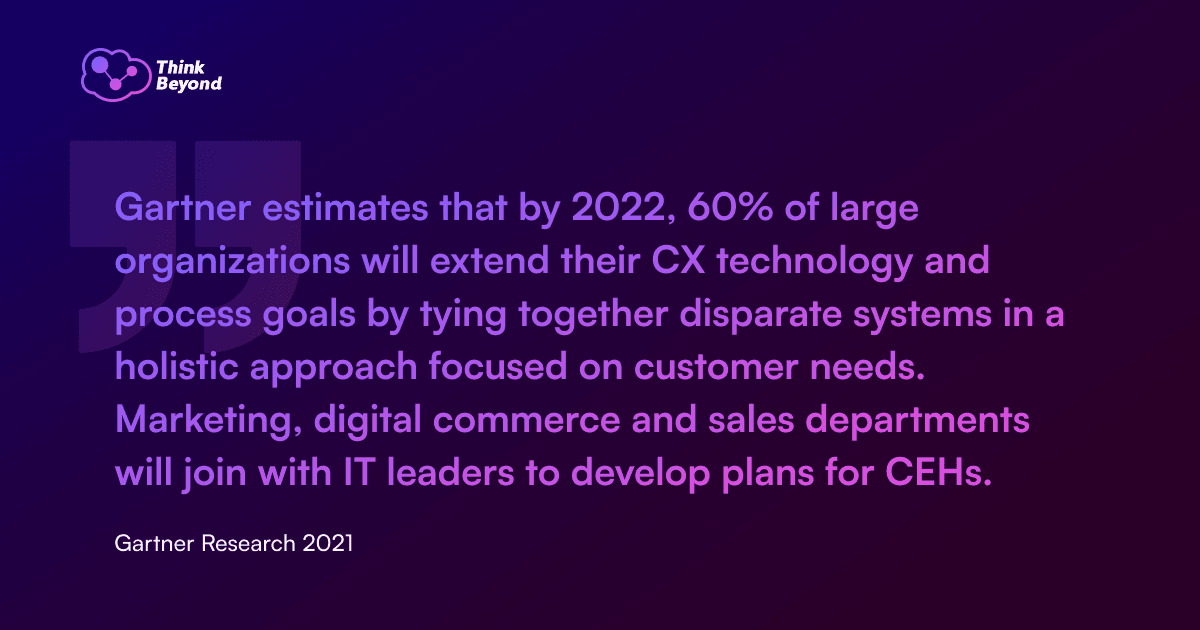Salesforce Service Cloud has been recognized as a leader in the 2023 Gartner Magic Quadrant for CRM Customer Engagement Centers. This underscores that it is an effective and reliable tool for enhancing customer engagement strategies. As the No. 1 Service Cloud, it empowers businesses to transform their customer service operations by leveraging a comprehensive suite of features: case management, omnichannel routing, service console and self-service options.
Key Reasons to Consider a Zendesk to Salesforce Migration
When comparing Zendesk and Salesforce Service Cloud, there are several key differences that address different organizational needs.
- 360-degree customer view: Salesforce Service Cloud gives teams access to detailed customer histories, which improves personalized service. In contrast, while Zendesk offers solid customer support tools, it focuses primarily on ticketing and customer interactions without the extensive CRM capabilities of Salesforce.
- Customization and integration: Salesforce allows companies to tailor workflows and processes to their needs, and is known for its extensive customization options. However, this complexity can lead to a steeper learning curve. Zendesk, on the other hand, focuses on simplicity and ease of use, with a clean interface that makes it easy for agents to learn the system quickly.
- Centralize sales and support data: With Salesforce, all teams have synchronized access to customer information, fostering collaboration. Zendesk offers effective support-focused features but lacks the same level of cross-departmental integration.
- Customer Success Management: Salesforce Service Cloud includes robust analytics and reporting tools, powered by AI, that provide deeper insights into customer interactions. Zendesk offers strong reporting capabilities but is more focused on support metrics.
Ultimately, the choice between Zendesk and Salesforce Service Cloud comes down to an organization’s specific needs-whether they prioritize comprehensive CRM functionality or straightforward customer support solutions.
Leveraging Key Features of Service Cloud for Seamless Zendesk to Salesforce Migration

Gartner mentions that Salesforce Service Cloud excels as a customer engagement center. What does that mean? This solution emphasizes both sides of service: the proactive and the reactive side, meaning that the focus is not only on past actions, but also on anticipating the customer’s future activities. With generative AI, such an approach is much easier to implement than it was a few years ago.
Here’s a closer look at its key features of Salesforce Service Cloud:
Lightning Service Console
- Provides a unified interface for agents.
- Consolidates customer data, case histories, and dashboards into a single view.
Case Management Tools
- Leverage Einstein AI for automated case routing.
- Match cases to the most suitable agents based on skills and availability.
- Ensure timely resolutions and improve service efficiency.
Slack Integration
- Facilitates real-time communication and collaboration between team members.
- Enables seamless information sharing and quick responses to customer requests.
Built-in Automations
- Simplify routine workflows by automating repetitive tasks (e.g. case assignments, follow-ups).
- Reduce manual errors and free up agents for more complex interactions.
Omni-Channel Routing
- Intelligently directs inquiries from various channels (email, chat, social media) to appropriate agents.
- Ensures efficient handling based on agent availability and expertise.
AI-Powered Article Recommendations
- Provide AI agents with quick access to relevant knowledge base articles during interactions.
- Speeds resolution times.
Custom Reports and Dashboards
- Enables the creation of custom reports and dashboards, including specialized Slack swarming reports.
5 Trends Shaping Customer Service and Support
Salesforce Service Cloud seamlessly aligns with the latest customer service trends identified by Gartner to improve the way organizations interact with their customers. So what trends will shape customer service in the years to come?
Trend #1: Digital Customer Service
Service Cloud leverages conversational AI and intelligent automation to facilitate interactions across multiple digital channels, ensuring timely and effective engagement. This capability enables organizations to be both proactive and reactive, meeting customer expectations for immediate support.
Trend #2: Workforce Engagement Management (WEM)
The platform includes tools that provide service teams with real-time insights and performance metrics to improve employee engagement and productivity. This ensures that agents are equipped to handle enquiries efficiently.
Trend #3: Customer Engagement Hub (CEH)
The Service Cloud acts as a central hub, integrating marketing, sales and customer service processes. This synchronization enables a holistic view of customer interactions and promotes cross-departmental collaboration to deliver consistent service experiences.
Trend #4: Communications Platform as a Service (CPaaS)
Salesforce provides a robust framework for building and deploying communications solutions, enabling organizations to create customized interactions across voice, chat, and messaging.
Trend #5: Customer Service Analytics
With advanced analytics capabilities, Service Cloud transforms unstructured data from disparate sources – such as emails and call recordings – into actionable insights. This enables organizations to optimize their service strategies based on real-time data.
Salesforce Service Cloud positions itself as a leader in delivering innovative customer service solutions that meet evolving market demands by embracing these trends.
Leveraging Salesforce’s Multi-Cloud Capabilities
Salesforce Service Cloud stands out as a top choice, recognized as a leader in the 2023 Gartner Magic Quadrant for CRM Customer Engagement Centers. That means it’s highly effective and reliable, helping employees, agents, and data work together seamlessly.
But there is more. Moving from Zendesk to Salesforce offers a significant advantage: you can access all Salesforce products on one integrated platform. With various clouds available, organizations can select the best options that align with their specific activities. But how do you determine which cloud is right for you? That’s where a Salesforce consulting partner comes in to help you implement the best of many available solutions.
Here’s a quick overview of what each Salesforce cloud offers:
- Sales Cloud helps sales teams work smarter and faster by centralizing customer information, logging interactions, and automating daily tasks. It streamlines the sales process, allowing for more efficient customer engagement.
- Service Cloud is designed for customer service. This tab-based workspace lets you manage multiple records on one screen. It tracks every interaction—whether through chat, social media, or email—ensuring your team can provide support whenever customers need it.
- Marketing Cloud focuses on managing customer journeys and includes tools for email marketing, mobile engagement, social media, web personalization, advertising, content creation, and data analysis.
- Commerce Cloud helps create and manage e-commerce websites, making it easy to sell products online.
- Experience Cloud enables companies to build beautifully branded digital experiences connected to their CRM. It allows for content creation that can be delivered across various websites, portals, mobile apps, and storefronts.

With these multiple Salesforce products, organizations and businesses can create seamless and integrated experiences across sales, service, marketing, commerce, and more. And the long-term results? Flexibility, scalability, and resilience that drive innovation and growth.
Benefits of Multi-Cloud Approach Resulting from Migration of Zendesk to Salesforce
Salesforce is more than just a single CRM tool; it’s a collection of tools and services designed to serve different functions. And a multi-cloud approach offers numerous benefits for businesses across various industries:
Flexibility and Choice
Salesforce’s multi-cloud approach provides flexibility so companies can tailor their cloud solutions to meet specific needs. If you are considering migrating from Zendesk, that means you can integrate Sales Cloud for customized sales processes, Marketing Cloud for targeted campaigns that adapt to real-time data, and Service Cloud for personalized customer support. And there are more clouds to implement as your business grows. Choosing the best tools for each function ensures optimal performance and responsiveness to market changes.
Scalability and Performance
As your business grows, you will need to scale up. With Salesforce, businesses can effortlessly expand their operations by distributing workloads across multiple cloud platforms. This means you can scale resources up or down based on demand without compromising performance.
Data Management and Analytics
By integrating sales, marketing, and service on a single platform, companies can unify customer data across platforms and gain a comprehensive view of interactions. This enables advanced analytics that provide real-time insights for informed decision-making. For example, marketing teams can analyze sales trends based on both internal and external data.
Resilience and Disaster Recovery
Distributing data and workloads across multiple cloud environments is a proven strategy for organizations seeking to mitigate the risk of downtime and data loss. In the event of an outage in one cloud environment, the others can seamlessly continue to serve requests. This redundancy protects critical business functions and enables rapid recovery from disruptions.
Data Security and Compliance
The world-leading No. 1 CRM platform utilizes robust security measures, such as data encryption and user access controls, across all clouds. This ensures sensitive information is protected while meeting regulatory requirements like GDPR and HIPAA. Additionally, Salesforce’s comprehensive audit trails allow for continuous monitoring of data access and usage, helping organizations maintain compliance and quickly identify any potential vulnerabilities.
Industry-Specific Benefits of Migrating from Zendesk to Salesforce
Migrating from Zendesk to Salesforce offers industry-specific benefits that can significantly enhance your business operations. Salesforce provides tailored solutions that address the unique challenges and requirements of various sectors, eliminating the need for extensive customization.
For example, the Automotive Cloud streamlines processes such as test drives and vehicle service appointments while offering inventory visibility and managing the end-to-end warranty lifecycle. In the Financial Services Cloud, features like customer segmentation and a scoring framework enable personalized client outreach and efficient revenue management.
The Loyalty Management solution allows businesses to manage promotions, tier upgrades, and transaction eligibility, enhancing customer engagement. Meanwhile, Salesforce for Education creates a unified view of the learner’s journey, facilitating recruitment, admissions, and student success tracking.
By leveraging these industry-specific solutions, organizations can boost efficiency and ensure compliance with industry regulations—all while taking full advantage of Salesforce’s powerful platform.
Migration from Zendesk to Salesforce: The Customer Experience Shift
Gartner’s findings indicate that large organizations increasingly focus on enhancing their customer experience (CX) technology by integrating disparate systems into a cohesive approach centered on customer needs. This evolution involves marketing, digital commerce, sales, and IT leaders collaborating to develop Customer Engagement Hubs (CEHs).

The future of customer service depends on service excellence. Salesforce Service Cloud addresses this challenge. Built on the robust Salesforce CRM platform, it provides the capabilities to deliver superior customer service at every stage of the sales process.
At Think Beyond, our team specializes in Zendesk to Salesforce Service Cloud migrations. We understand the unique challenges your business faces and implement solutions that are specific to your organization. With our implementation services guiding the way, you can confidently navigate the complexities of multiple Salesforce products, optimizing your operations for maximum efficiency.

